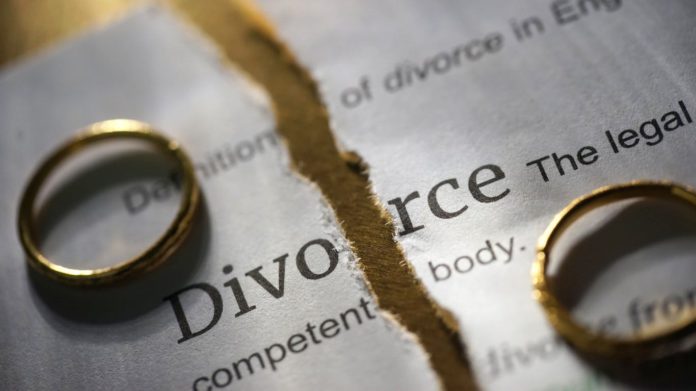Feeling grief, like you’re unable to move on, is normal when you’re going through a divorce. After all, divorce is the end of a way of life and of your dreams. It makes sense that you’d feel sad about it, mourn who you were in your married life and are no more, and be grief-stricken that all of your plans for a happily-ever-after have come to a screeching halt.
It’s even normal that the grieving process during a divorce triggers situational depression and you end up having some seriously uncharacteristic and uncomfortable thoughts. Dealing with grief of any kind is really hard. For most people, it’s a depth of pain they’ve seldom or ever experienced before. And because it’s so unfamiliar, it’s important to know — and be able to recognize — when what you’re experiencing is not typical so you can learn how to move on.
What is normal grief? Elisabeth Kubler-Ross was a pioneering grief researcher. She found that there are 5 stages of grief: denial, anger, bargaining, depression, and acceptance. She also found that no one simply proceeds through each of the stages one after the other. Grief in divorce is complicated and personal. No one experiences it in exactly the same way. Chances are you’ll flow through the stages more than once and not always in the same order. You may even find yourself revisiting your grief about your divorce long after you think you’ve healed.
And every last bit of this is normal. However, not everyone has a normal grief experience when they divorce. Some people seem to get stuck in their grief and don’t get over it. This is called complicated grief. How do you recognize it? When should you be concerned about how long it’s taking you to get over your grief? While coping with grief during the divorce process, you’ll eventually notice that:
- You’re accepting the reality of the loss of your marriage, your dreams for the future, and everything else that is no more because of your divorce.
- You allow yourself to truly feel the deep pain of your losses.
- You’ve adjusted to your new life.
- You’re building new friendships and maybe even dating.
However, if it’s been more than a year and you’re still seriously struggling with grief due to your divorce, you may have complicated grief. Complicated grief can actually keep you from healing. The Mayo Clinic has identified the following as some signs and symptoms of complicated grief (adapted for grief in divorce):
- Intense sorrow, pain, and rumination over the loss of your marriage
- Focus on little else but your divorce
- Extreme focus on or excessive avoidance of reminders of your marriage
- Intense and persistent longing or pining for your ex or your married life
- Problems accepting your divorce
- Numbness or detachment
- Bitterness about your losses
- Feeling that life holds no meaning or purpose
- Lack of trust in others
- Inability to enjoy life or think back on positive experiences during your marriage
- Persistent trouble carrying out normal routines even a year after your separation/divorce
- Continue to isolate yourself from others and withdraw from social activities even a year after your separation/divorce
- Still experience depression, deep sadness, guilt, or self-blame for your divorce a year or more after your separation/divorce
- Feel life isn’t worth living
- Wish you had died instead of getting divorced
If you believe you could be suffering from complicated grief, it’s time for you to see your doctor or a mental health professional. Complicated grief is not something you can get over on your own and it’s important to get yourself the help you need and deserve. Complicated grief can be treated. And if you’re struggling with it, by getting the help you need you’ll be able to move on with your life after divorce. Grief in divorce is normal. Healing from it and moving on with your life is normal too. Sometimes the grief people experience in divorce becomes complicated and when it does, it’s normal to ask for help.

